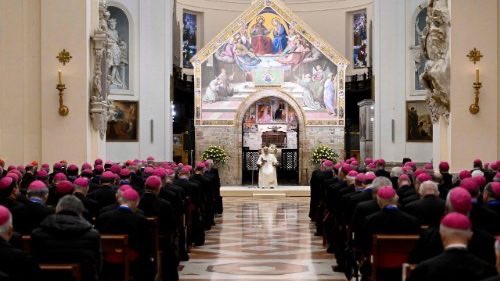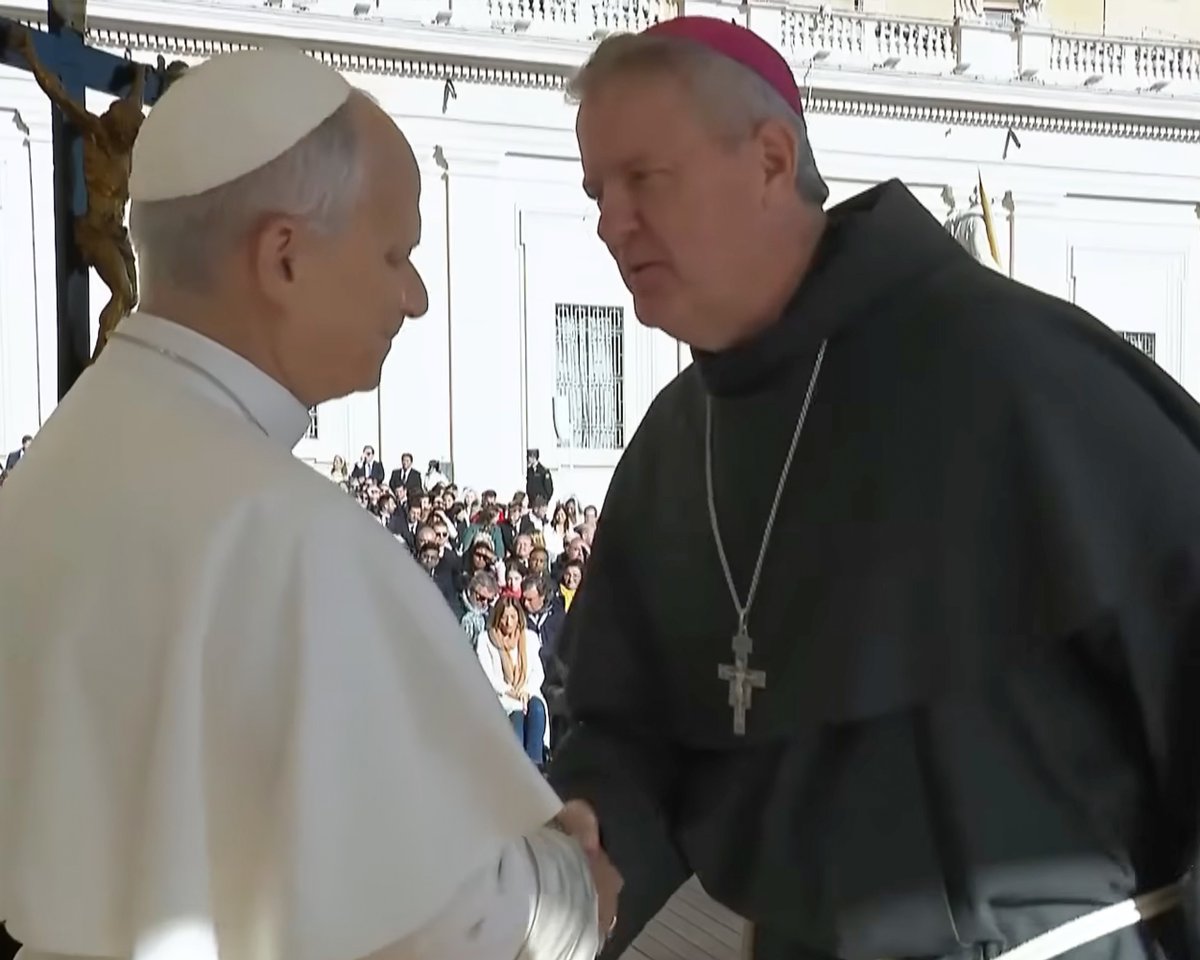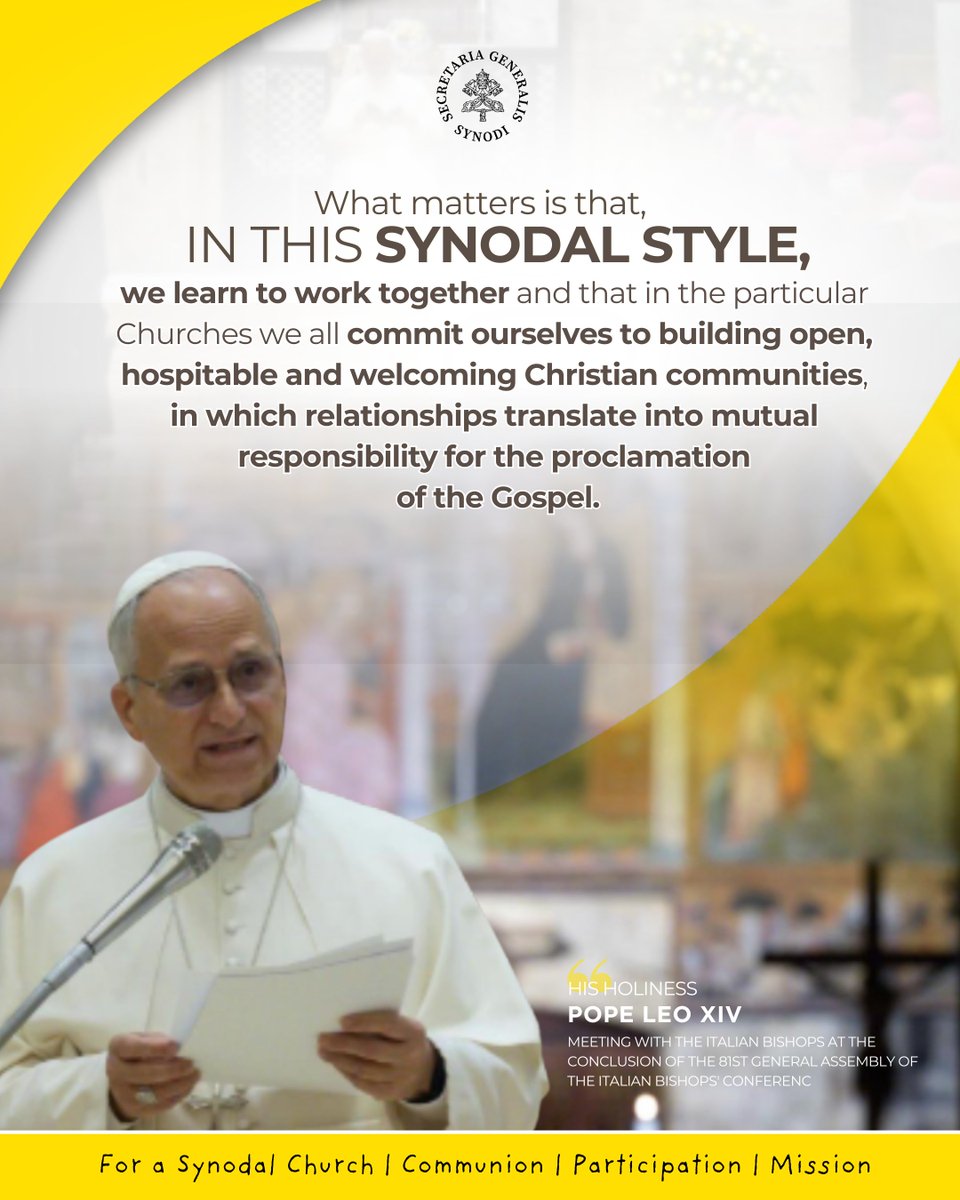The Bread of Life is overrated…
Sharing the Loaves:
Modernist Drivel at “Papal” Retreat

If you’re wondering why Francis has been so silent all week, it’s because he is currently on retreat with members of the Curia in Ariccia near Rome. Unfortunately, however, Jorge Bergoglio’s silence comes at a price: We now have to hear about the Modernist tripe preached by the “papal” retreat master instead, and tripe it is.
On March 9, 2016, Aleteia’s Rome correspondent, Diane Montagna, reported on one of the “meditations” offered that day by the Modernist preacher, a certain “Fr.” Ermes Ronchi, OSM, who reflected on the question, “How many loaves do you have?” in the account of the Multiplication of the Loaves and Fishes (see Mt 14:14-21; Mk 6:34-44; Lk 9:12-17; Jn 6:1-14). This multiplication is always a great stumbling block to a Modernist, who will not accept the simple account that is given in the Gospels about the Lord of Heaven and Earth miraculously multiplying food to feed the hungry masses. We know that the miraculous multiplication of the loaves was a foreshadowing of the Holy Eucharist, in which our Lord Jesus Christ gives Himself entirely — Body, Blood, Soul, and Divinity —, under the appearances of bread and wine, to the faithful to nourish, sustain, and strengthen their souls unto eternal life. This is why the feeding of the five thousand was followed by our Lord’s discourse regarding the Holy Eucharist:
Jesus answered them, and said: Amen, amen I say to you, you seek me, not because you have seen miracles, but because you did eat of the loaves, and were filled. Labour not for the meat which perisheth, but for that which endureth unto life everlasting, which the Son of man will give you….
I am the bread of life. Your fathers did eat manna in the desert, and are dead. This is the bread which cometh down from heaven; that if any man eat of it, he may not die. I am the living bread which came down from heaven. If any man eat of this bread, he shall live for ever; and the bread that I will give, is my flesh, for the life of the world. The Jews therefore strove among themselves, saying: How can this man give us his flesh to eat? Then Jesus said to them: Amen, amen I say unto you: Except you eat the flesh of the Son of man, and drink his blood, you shall not have life in you. He that eateth my flesh, and drinketh my blood, hath everlasting life: and I will raise him up in the last day. For my flesh is meat indeed: and my blood is drink indeed. He that eateth my flesh, and drinketh my blood, abideth in me, and I in him. As the living Father hath sent me, and I live by the Father; so he that eateth me, the same also shall live by me. This is the bread that came down from heaven. Not as your fathers did eat manna, and are dead. He that eateth this bread, shall live for ever.
(John 6:26,48-59)
“Fr.” Ronchi, by contrast, uses the account of the multiplication of the loaves to talk about “sharing” and to drop some veiled sneers at the Holy Eucharist and the importance of life-giving religious truth (cf. Heb 11:6):
Five loaves are enough to change the world, papal retreat master Fr. Ermes Ronchi told Pope Francis and members of the Roman Curia on Wednesday morning, as they entered the third full day of their Lenten retreat in the Roman hillside town of Ariccia.
…
“There are people so hungry that, for them, God cannot have the form of bread.” Life begins with hunger, and “to be alive is to be hungry,” Fr. Ermes said as he opened the meditation. And if you look at the wider picture, there is mass starvation, “a siege of the poor,” millions of outstretched hands asking for something to eat, not for “a religious definition”….
In the Gospel, “loving” translates into “giving.” The miracle of the multiplication of the loaves shows us that Jesus “pays no attention to the quantity” of bread. What he wants is that our bread is shared:
“According to a mysterious divine rule, when my bread becomes our bread, then even what is little becomes sufficient. By contrast, hunger begins when I hold on to my bread for myself, when the satiated West holds onto its bread, its fish and its assets for itself (…) Feeding the world, the whole world, is possible. There is bread in abundance. We don’t need to multiply it, we just need to distribute it, beginning with ourselves. We don’t need miraculous multiplications; we need to beat the Goliath of selfishness, of wasting food and accumulation by a few.”
…
Five loaves are enough to change the world: “The miracle is the five loaves and two fish which the nascent Church placed trustfully in the hands of Jesus, without calculating, and without holding back anything for herself and for her own supper. It was very little, but it was all she had. It was little, but it was the disciples’ whole supper. It is a drop in the bucket, but it is that drop which can give meaning and hope to life.”
(Diane Montagna, “Stop Loafing: You May Have More Bread Than You Think. On Retreat With Pope Francis”, Aleteia, Mar. 9, 2016; underlining added.)
Ronchi here echoes the Modernists’ distortion and trivialization of the feeding of the five thousand. According to the Modernists, the loaves did not actually multiply miraculously as our Lord distributed them to all; rather, the “miracle” consisted in a selfless sharing of the food that the disciples had accumulated, which was in itself sufficient for all present. So, the lesson we are to take from this, according to the Modernist reading, is that as soon as people stop being selfish and “holding back anything for themselves”, then they realize that there is plenty of food available to feed everyone (cue for warm fuzzies to kick in now).
Once more, Naturalism rules the day in the Novus Ordo Church — the Gospel is constantly hijacked to focus on this world, on matters of the body, rather than on the next world, on matters of the soul. Yet, our Lord used the occasion of the feeding of the five thousand to warn against precisely this: “Labour not for the meat which perisheth, but for that which endureth unto life everlasting, which the Son of man will give you” (Jn 6:26). Apparently, Ronchi would have blasphemously rebuffed our Lord thus: “Excuse me, the people are hungry; they’re not looking for religious talk”!
Like any Modernist, of course, Ronchi is sly in his presentation of this Modernist drivel, leaving a little room for plausible deniability and just enough for someone like Jimmy Akin to hang on to, in case someone were to accuse him of heterodoxy. He does, after all, talk about “miraculous multiplications”, you see.
Ronchi knew he would be safe preaching the Modernist “the miracle consisted in sharing” heresy in the presence of Francis, because the Argentinian impostor pope himself is on the record denying the plain teaching of the Scriptural text and opting for the politically-correct “sharing” interpretation instead. We reported on this over two years ago, after Jimmy Akin published a miraculous multiplication of excuses to exonerate Bergoglio:
As shown in the above-linked post, Francis teaches that the miracle Christ worked was not a multiplication but rather “a sharing, inspired by faith and prayer”. Calling it a “parable” (!), he claimed that the true meaning of the feeding of the five thousands is that “if there is the will, what we have never ends”. Clearly, Ronchi and Francis are two peas in a pod when it comes to denying the truth of Holy Scripture.
But let us be clear: Of course it is noble and important to feed the hungry. There is no question about that. But it is wrong to exaggerate its importance. Christ didn’t come to feed the hungry; He came to redeem our souls from sin and eternal damnation. Ultimately, we will all die, and our bodies, whether they were pampered with riches or suffered great want in this life, will be eaten by worms. As our Lord counseled us, we must labor for the meat that will not perish. It is clear, therefore, that an excessive emphasis on the natural needs of this world, to the neglect or exclusion of spiritual things and things pertaining to the soul, is wrong and dangerous.
Francis likes to focus almost exclusively on matters pertaining to the body, pertaining to the present world, and when he invokes matters of the soul, he often does so only to underscore a naturalist point he’s making. How does God fit into the picture? Oh, He has a role to play in Francis’ apostate religion: God is there to solve your problems, make you feel good, and forgive your sins. That’s His job. But when was the last time you heard anyone in the Vatican II Religion speak about the infinite Majesty and Dignity of God, what we owe to Him, how He is wholly deserving of all our Faith, adoration, love, and obedience? When did you last hear that our sins are a grave injustice against God, who is outraged by them? When were you last told that we must make reparation for our sins? When do you ever hear what the true purpose of human existence is?
In the Novus Ordo Church, the god you hear about has no dignity, no majesty, no grandeur. He is not the God of the Old and New Testaments. Their god is a god who cannot be taken seriously, and whom they do not take seriously. They preach a god who is basically a useful idiot, whose only purpose is to serve man, and this shows in their conduct, in their doctrine, in their worship, and in the dwindling numbers of their religious vocations and membership at large.
As we have shown before, Francis preaches a false gospel, what we have termed the “Gospel of Man”. Have a look:
It is no wonder that when he is asked why God allows children to suffer, he has no answer and, worse yet, blasphemously claims that there is no answer:
The false naturalist gospel cannot explain human suffering, especially the suffering of the innocent. Such suffering can only be explained by the true Gospel, which teaches us that God permits all suffering for the sake of our salvation and sanctification, even if we cannot understand how a particular suffering is beneficial to us.
Over 100 years ago, Pope Saint Pius X refuted the false naturalist gospel that has emanated from the Vatican since the death of Pope Pius XII and has currently reached its zenith under Francis. In an apostolic letter to the French bishops about the error of Sillonism, the Holy Father Pius X clarified the true nature of the Gospel and put social concerns in proper perspective:
The same applies to the notion of Fraternity which [the Sillonists] found on the love of common interest or, beyond all philosophies and religions, on the mere notion of humanity, thus embracing with an equal love and tolerance all human beings and their miseries, whether these are intellectual, moral, or physical and temporal. But Catholic doctrine tells us that the primary duty of charity does not lie in the toleration of false ideas, however sincere they may be, nor in the theoretical or practical indifference towards the errors and vices in which we see our brethren plunged, but in the zeal for their intellectual and moral improvement as well as for their material well-being. Catholic doctrine further tells us that love for our neighbor flows from our love for God, Who is Father to all, and goal of the whole human family; and in Jesus Christ whose members we are, to the point that in doing good to others we are doing good to Jesus Christ Himself. Any other kind of love is sheer illusion, sterile and fleeting.
Indeed, we have the human experience of pagan and secular societies of ages past to show that concern for common interests or affinities of nature weigh very little against the passions and wild desires of the heart. No, Venerable Brethren, there is no genuine fraternity outside Christian charity. Through the love of God and His Son Jesus Christ Our Saviour, Christian charity embraces all men, comforts all, and leads all to the same faith and same heavenly happiness.
…
And now, overwhelmed with the deepest sadness, We ask Ourselves, Venerable Brethren, what has become of the Catholicism of the Sillon? Alas! this organization which formerly afforded such promising expectations, this limpid and impetuous stream, has been harnessed in its course by the modern enemies of the Church, and is now no more than a miserable affluent of the great movement of apostasy being organized in every country for the establishment of a One-World Church which shall have neither dogmas, nor hierarchy, neither discipline for the mind, nor curb for the passions, and which, under the pretext of freedom and human dignity, would bring back to the world (if such a Church could overcome) the reign of legalized cunning and force, and the oppression of the weak, and of all those who toil and suffer.
…
We wish to draw your attention, Venerable Brethren, to this distortion of the Gospel and to the sacred character of Our Lord Jesus Christ, God and man, prevailing within the Sillon and elsewhere. As soon as the social question is being approached, it is the fashion in some quarters to first put aside the divinity of Jesus Christ, and then to mention only His unlimited clemency, His compassion for all human miseries, and His pressing exhortations to the love of our neighbor and to the brotherhood of men. True, Jesus has loved us with an immense, infinite love, and He came on earth to suffer and die so that, gathered around Him in justice and love, motivated by the same sentiments of mutual charity, all men might live in peace and happiness.
But for the realization of this temporal and eternal happiness, He has laid down with supreme authority the condition that we must belong to His Flock, that we must accept His doctrine, that we must practice virtue, and that we must accept the teaching and guidance of Peter and his successors.
Further, whilst Jesus was kind to sinners and to those who went astray, He did not respect their false ideas, however sincere they might have appeared. He loved them all, but He instructed them in order to convert them and save them. Whilst He called to Himself in order to comfort them, those who toiled and suffered, it was not to preach to them the jealousy of a chimerical equality. Whilst He lifted up the lowly, it was not to instill in them the sentiment of a dignity independent from, and rebellious against, the duty of obedience. Whilst His heart overflowed with gentleness for the souls of good-will, He could also arm Himself with holy indignation against the profaners of the House of God, against the wretched men who scandalized the little ones, against the authorities who crush the people with the weight of heavy burdens without putting out a hand to lift them.
He was as strong as He was gentle. He reproved, threatened, chastised, knowing, and teaching us that fear is the beginning of wisdom, and that it is sometimes proper for a man to cut off an offending limb to save his body.
Finally, He did not announce for future society the reign of an ideal happiness from which suffering would be banished; but, by His lessons and by His example, He traced the path of the happiness which is possible on earth and of the perfect happiness in heaven: the royal way of the Cross. These are teachings that it would be wrong to apply only to one’s personal life in order to win eternal salvation; these are eminently social teachings, and they show in Our Lord Jesus Christ something quite different from an inconsistent and impotent humanitarianism.
(Pope St. Pius X, Apostolic Letter Notre Charge Apostolique [“Our Apostolic Mandate”], 1910; underlining and pargraph breaks added.)
Obviously, the religion of Francis, Ronchi, and the entire New Church that has come out of Vatican II is not the religion of St. Pius X. Now draw the conclusion.
Image source: shutterstock.com
License: paid






No Comments
Be the first to start a conversation